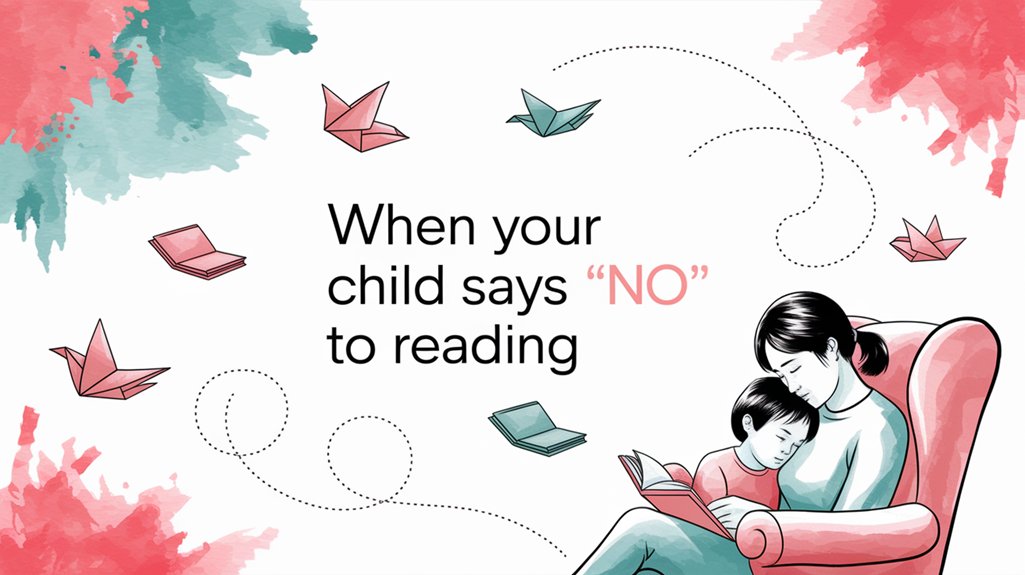Reading is often seen as a foundational skill that parents in Singapore are eager to develop in their children. But what happens when your little one actively resists learning to read? This situation can be both puzzling and concerning for parents who value education and want to give their children the best start possible.
A Parent’s Concern
My daughter is 5 years old and recently told me she doesn’t want to learn how to read. This came as a shock because we read to her almost every night, and she learned her letters very early. When she was in preschool, she knew all her letters, could write them, and sound out most of them. She seemed ahead of her peers.
But since entering K1, her reading performance has declined each term. I bought special reading materials to help her at home, but now when I point to a letter like ‘a’, she claims she doesn’t know what it is. Even after telling her multiple times, she says she “forgets.”
What’s most concerning is her sudden regression. When I try to teach her at home, she acts like she’s much younger than her age. She refuses to look at the learning materials and cries if she makes a mistake. I worry she’ll fall behind her classmates at her preschool centre. More than anything, I’m worried because she refuses to even try. How can I help my daughter embrace reading again?
Our Parenting Guidance
As parents in Singapore, we often place tremendous value on academic readiness, especially with reading. The pressure to prepare our children for our competitive education system can sometimes lead us to push early literacy skills before a child is ready. However, this approach may backfire.
The situation you’re describing is actually quite common. When children feel pressured about learning, they sometimes cope by withdrawing or pretending not to know things they previously mastered. This is their way of reducing the anxiety they feel about meeting expectations.
Take the Pressure Off
The first and most important step is to completely remove any pressure around reading. In Singapore’s achievement-oriented culture, this can feel counterintuitive, but research shows that children learn best when they’re relaxed and enjoying the process.
For now, stop formal reading lessons at home. Continue reading to your child every night, but focus solely on the joy of stories. Use different voices for characters, talk about the pictures, and make it a warm, positive bonding experience. Reassure your child that you’ll continue reading to her even after she learns to read herself.
Many children worry that once they learn to read, parents will stop reading to them—this is a common and valid fear. Let your child know that storytime is special and will continue regardless of her reading ability.
Make Reading Functional and Fun
Instead of dedicated “learning to read” sessions, incorporate reading naturally into daily activities that Singapore families typically enjoy:
- When visiting popular spots like Gardens by the Bay or the Singapore Zoo, point out signs and read them together.
- At hawker centres, look at menu boards together and point out familiar words.
- Play “I Spy” with letters while riding the MRT or bus.
- Use magnetic letters on the refrigerator to spell simple words related to snacks or meals.
- Consider bilingual materials if your family speaks multiple languages at home, which is common in Singapore.
Turn reading into a game rather than a task. When your child shows interest in a word or letter, celebrate it casually without making it a big achievement.
Find Materials That Spark Interest
Many preschoolers in Singapore respond better to reading materials that connect to their interests:
- If your child loves animals, visit the library at Jurong East or Tampines and look for books about wildlife.
- For children interested in vehicles, books about the MRT, buses, or ships at our port might be engaging.
- Children who enjoy food might like simple recipe books with pictures.
- Consider graphic novels or comic books from local Singapore publishers, which often have fewer words per page but still encourage reading.
The National Library Board offers excellent resources for early readers, including holiday programs specifically designed to make reading fun. The annual Read! Fest also provides opportunities to engage with stories in interactive ways.
Consider Developmental Readiness
In Singapore, we sometimes forget that children develop at different rates. While our education system may emphasize early reading, many developmental experts note that some children aren’t ready to read until age 6 or 7.
If your child continues to resist reading, consider having her vision checked at KK Women’s and Children’s Hospital or National University Hospital. Sometimes resistance to reading can stem from vision problems or processing difficulties that make reading physically uncomfortable.
You might also speak with her preschool teacher about observing her in class. Is she showing similar resistance there, or is this behavior specific to home learning?
A Few Kind Reminders
Remember that your relationship with your child matters more than early academic skills. Children who associate reading with stress may develop long-term negative attitudes toward books and learning.
Trust that with your support and patience, your child will learn to read when she’s ready. Many children who initially resist reading become enthusiastic readers once they discover books that spark their imagination.
Most importantly, continue modeling reading in your own life. When children see their parents reading for pleasure, whether it’s a novel, a newspaper, or even content on a tablet, they understand that reading is valuable and enjoyable.
Your concern shows how much you care about your child’s development. By balancing that care with patience and understanding of her emotional needs, you’ll help her develop not just reading skills, but a lifelong love of learning—something far more valuable in the long run.








